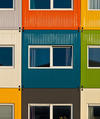
Lead Image © Author, 123RF.com
Debian's quest for reproducible builds
Bit by Bit
A question that is more often asked is whether or not you can trust software at all. If you look at the backdoors required by state authorities and the software companies that comply, or the army of criminal hackers that attempt to foist malicious software onto users, your answer might be, "No."
Usually you can trust the distribution to deliver packages that correspond to the source code from which they were built. These packages can be difficult to manipulate because the content of the archives bears the signature of the respective package maintainer's GPG key. However, these safeguards do not work all the time. For example, Linux Mint recently fell victim to a manipulated image and delivered it to its users.
Although Debian sets the bar high, some developers asked themselves several years ago what they could do to further improve security. The resulting idea: Users can check at home, bit-by-bit, whether a package corresponds to the underlying source code. As early as the turn of the millennium, some initial suggestions for reproducible binary packages appeared on the Debian Developers list, but the idea was dismissed as infeasible.
Still Experimental
The project, still in the experimental phase, has again taken up this basic idea known as reproducible builds [1]. After about two years of intensive work, by 2017 with Debian 9 "stretch," the project reached a point at which Debian could be built in at least a partially reproducible way. As a final target, the developers look to ensure that all packages can be reproducibly built and that the tools specially created for this purpose find their way into the Debian infrastructure. This is done to ensure reproducibility in the future.
The clear promise of the reproducible builds project is as follows: Anyone can build identical binary packages of a
...Buy this article as PDF
(incl. VAT)
Buy ADMIN Magazine
Subscribe to our ADMIN Newsletters
Subscribe to our Linux Newsletters
Find Linux and Open Source Jobs
Most Popular
Support Our Work
ADMIN content is made possible with support from readers like you. Please consider contributing when you've found an article to be beneficial.






